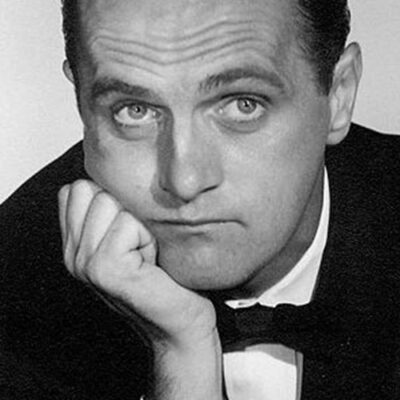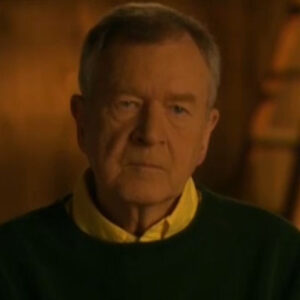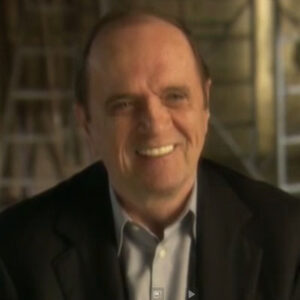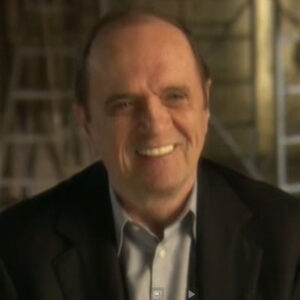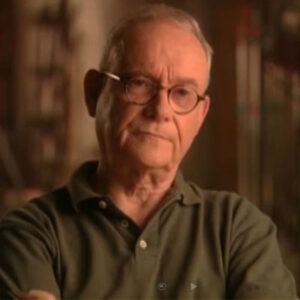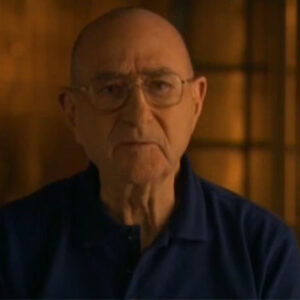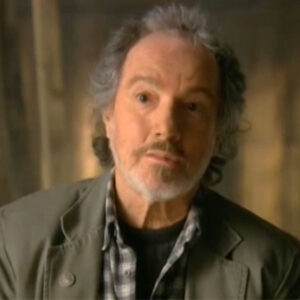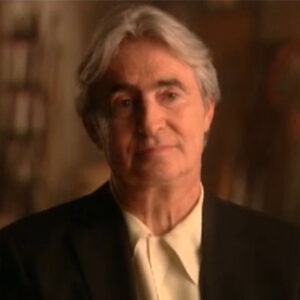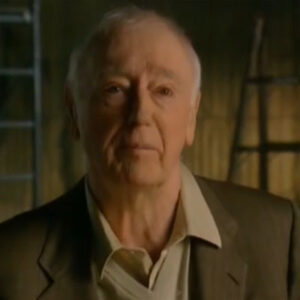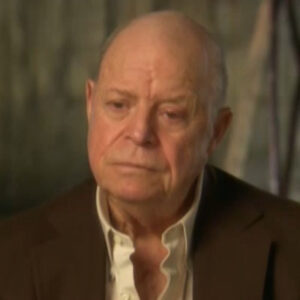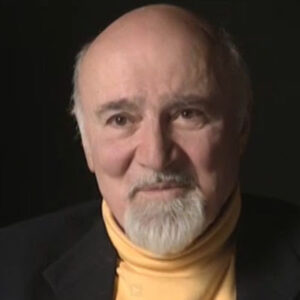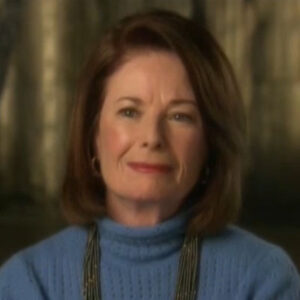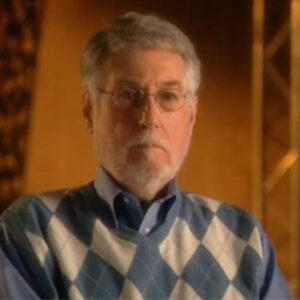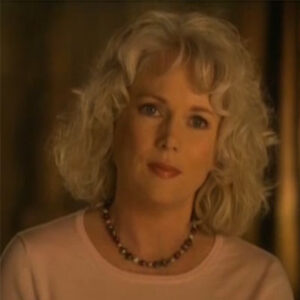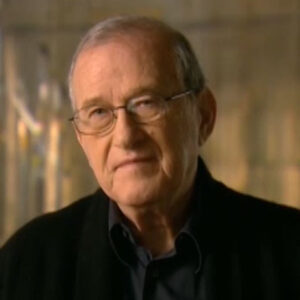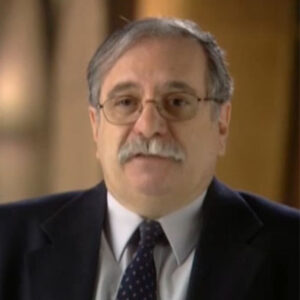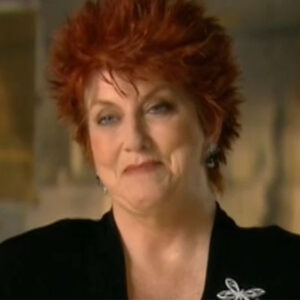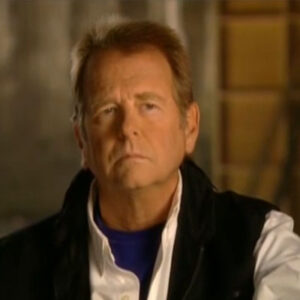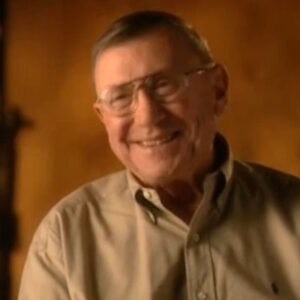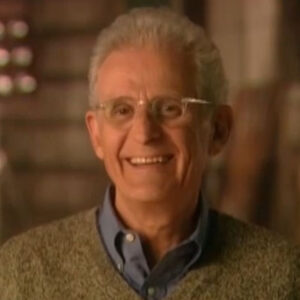Tom Poston: We met almost at the same time that he became. A giant star, which was immediately Susie. I happen to know some some other people who worked with him in Texas when. When they said that. He duck. He had actually cut the albums for button down. We said that it was this is first nightclub appearance. I said something. Nobody said, I don’t believe that. You know, that’s nonsense. There’s no no possibility that his first appearance in a nightclub that he would be able to do those albums. So I asked him, you know, knowing what the answer would be, and he said, Know, that’s right. His first nightclub appears he did two shows. They say they recorded two of his shows. And from that day, they took the button down. I was genuinely astonished. I mean, that’s really Richard Pryor. And then shortly after, he had actually burst on the scene like that. We’re not doing a show for David Susskind. He had a bunch of comics on the show discussing comedy and so forth. But since they had Buddy Hackett and Alan King and I can’t remember what other heavyweights they had on there, Bob and I didn’t have much to say. We just kind of listened and laughed. But that was when we first met and we’ve been friends ever since.
Interviewer: What was it about this when you heard those first heard those albums? Can you talk about your impressions or what was so unique about.
Tom Poston: Well, oh, sure, I said to myself. What’s he doing copying Bob Arbogast? He would understand that, but nobody else would. Rob Arbogast was a wonderful friend of mine who did great. Great great comedy stuff and a wonderful comedy, Mind and Bob’s Mind, as it runs along the same tracks.
Interviewer: What is it about his style or his delivery? Do you remember thinking, you know, it was it was a different than a lot of the other top comics of the day?
Tom Poston: Totally different, in my opinion. And was still is. Yeah, he seemed to have. An uncanny ability to evoke in the listener the same response that he had to his situation. And it was it was as if you were you were doing it. Almost as if you were doing it with him. You were meeting his Henzell in situations with him and responding. He just had a knack for capturing how any average normal person would feel. In that same situation, it was miraculous. And now I I happen to know that he’d been doing things in the Chicago area. He used to have a partner and they wrote and did stuff. And then he did he did little pieces on various TV shows. At one time or another. But it was almost as if they ask. Staging. Come and tell him something that had happened to him that day or something, so that was generally speaking. He didn’t have any pressure on him to perform as. And now here he is, Mr. Bob Newhart, the funniest man in America. Go ahead, Bob. Kill the people. It was like I’ve decided to take your time. But this just happened and I thought we should do so. So that it was. A wonderful way for him to explore those zany, different characters in the zany situations that he found himself in. But the fact that he could do those tapes, which is which are still being sold today, is still set to stand up, just like the original is a miracle in the first appearance he did in a nightclub.
Interviewer: It is amazing. So he was like a more like a real person.
Tom Poston: I asked him if he was frightened or scared when you did. He said, You mean still? I guess I don’t think he knew just how frightening. He’s very brave guy, by the way.
Interviewer: That’s a good point. He probably didnt have the experience to know.
Tom Poston: Oh, what an opportunity for utter failure. Gosh. He’s very brave. He’s a very brave human being. He seems timid and so he’s very brave. Got to stand up and do that stuff. Never flinch. Audience after audience after audience after audience and kills them every time I never saw him fail in a warm up. He always warmed up the audience. I mean, we had a guy that did it professionally, a warm up guy, and then Buddy Bob would always come out before the show and do a little little piece. Never failed. Never fail.
Interviewer: So he could really read an audience. Was that important to him to be able to gauge the audience?
Tom Poston: I think you did it for that reason and also to. To. Sure, he’s a stand up. He is besides being a pretty darn good actor. He’s a standup and he likes to work alone. He I think he prefers it. Maybe, maybe I’m wrong, but I think he prefers to work alone. And he didn’t want to miss an opportunity to do that once a week or or how often the show was on. And we always had a live audience. So. He just said he enjoyed it. It was a lot of work for me. He had to prepare for that. Each each show decides what he was going to be doing on the show as. So what was his name? Dick Loudon, Dick Loud. Wonder where they got that new.
Interviewer: Let’s talk about the Bob Nehart show. First, you tell me about your role on that, on that.
Tom Poston: Jimmy Burrows was a friend of mine. We’d worked together in New York and he came out here and wanted to be a director, so he learned how to direct situation comedies. And he was going to director Bob Newhart Show. We were close friends. So he said that there was a character on the show that that he had proposed me for. So we’re on the way to the studio to audition for the. For this part. And he said, don’t tell anybody that I recommended you because it might even hurt you. So don’t say so. We got to show and unbeknownst to my husband, amazing. We got to the show and unbeknownst to.
Interviewer: I know it’s crazy. It is amazing.
Tom Poston: How did you even know it well enough to do it? The first time.
Interviewer: Yeah, exactly. So I’m sorry. Your part was created.
Tom Poston: Well, there was this there was a part of this of Bob’s college roommate. This is in the first Bob Newhart Show. And Jimmy Burrows recommended me for the thing. Unbeknownst to him or me before I got there, Suzanne Pleshette, who is an old friend, currently even a better friend. Had recommended me. Unbeknownst to them or me or Jimmy Mary and recommended me for the part. And unbeknownst to any of them, Bob had recommended me. So I was a lock. I didn’t know it at the time. But. And. That was so much fun. Suzanne. My beloved and Bob, dear old friend, we were even better friends before I worked for him than than afterwards. It’s taken me a long time since the show went off the air to convince him that I don’t need a job. Actually, I do. Bob, if you’re listening, you know you’re listening to this, Bob. Get a show. OK.
Interviewer: What was what was unique about that show?
Tom Poston: It didn’t seem like it was groundbreaking at all at the time, or one of the things that was unique about it was that Bob didn’t want to do it. No, he wanted to do movies, he wanted to do Vegas, he wanted to do is stand up were. They begged him to keep doing the show the night of the show. When is the last? Last night there was a party on stage for everybody and everything and. And Bob kiddingly said, I know you all think this is the last night of the show. But I’ve decided to go on to do more. And this is to be a big joke. But the head of CBS ran up to where Bob was in the stands with a contract and a pen and said. Please. I wanted him to do it, but he was he had other things in mind. He wanted to do other things.
Interviewer: Why do you think that was just. Was he thought of it or just done or what was?
Tom Poston: Other other worlds to conquer. Well, the road to more of the two main reasons he wanted to do Vegas. These were, you know, giant, giant things that he had in mind that he was more interested in than what he considered a little TV sitcom show, you know, that bunch of other actors and scripts and things. What did he need it for, Bobby? So.
Interviewer: Did he seem on that first to have him stand up. He was never done a sitcom. Didn’t seem like he was at all uncomfortable learning at first.
Tom Poston: He’ll he’ll fool you. Fool you. He’ll he a let on that he’s in deep water. But. He says he’s out there swimming and saving everybody else. He had done TV and he had starred in television, but it was mostly during his pieces and things like that. And whether he had actually. Actually done a sitcom or not, I don’t know. But I know he acted on the stage. I know because one of the things that he did was a show that I did on Broadway. So I know that he did things on the stage before he hit the button on mine. Well, maybe after. I’m not sure.
Interviewer: What was he like to work with on the set? I mean, did he like to rehearse or what was it? What did he. What was he like to work with?
Tom Poston: Only the best. He he ran the best stage, he ran the best stage in the business. First of all, his philosophy was learn it and do it and go home. Not. This is my life. Let’s stay here forever. This is so much fun. At one o’clock, we’re going to let the audience go home. And then we’re going to turn the sets all around and do it from the reverse of every scene as a. None of that. None of that, none of that. No self-indulgence. If there was any self-indulgence. It was let’s get the show done and go home. Learn your lines, learn your business, learn your art, do what you’re supposed to do, you’re getting paid for it. Do it. Get out of here.
Interviewer: But what about forget? What was it? Did he have any tricks for helping him know his lines or anything? I had heard where he sometimes had little cards hidden around the set to help him know his lines or anything like that.
Tom Poston: I could think of one one time on Newhart when he had lines on a cereal box or something. But they were weird lines. I can’t remember exactly what it was, but they were strange. Strange lines almost on Memorizer Ball. But that was the only time that I remember. Now, he may have fooled me and headlines someplace that I didn’t know about or didn’t see, but that was the one time I remember that he had him on a cereal box. The backup backup. Something that he was. He was good. He was good, a good artist. He was a good professional, very professional. Always on time. Always, always, always. Always on time. Always, always. Always lines. Always. He was very professional, is is very professional.
Interviewer: Why do you think that rule on the first one on The Bob Newhart Show? Why do you think that role worked so well for Bob Newhart?
Tom Poston: I guess for us not to leave out Bob for a moment, but they had very, very good producer MTM with a capital production team. They had already priceless Bob’s personal manager and had been. Before he became television star. They had the best writers that they could possibly get their hands on. And then the cast was superb. Suzanne Pleshette as the wife is still getting kudos for that work and Bob pretended that that everyone else knew what they were doing, except except Bob baloney. He knew what he was doing and he organized with the help of Artie Price and no grant ticker and so forth. He organized those writers. And the writing was good. It was it was interesting. And then he just has a way, Bob, as a way. He’s just a funny, funny fellow. He thinks funny. And he and his brain works in funny ways. And it comes out. He has a funny delivery. He’s a funny man.
Interviewer: Did you have any favorite moments from that first series? Favorite episodes are moments between the two of you.
Tom Poston: I was there were so many but one that stands out as I was I had maple shirt. Sure. Maples, sugar, maple syrup. Farm in Vermont and. And I brought him some Maple’s candy, maple maple syrup, candy, maple sugar, candy, maple sugar candy and a little cart like this. And I was leaving. Maybe I was leaving forever. I can’t remember. But. So this is for you. And I gave it to him to open it and the snakes came out. So. I said sorry. That was just a little joke. And I don’t want you to have some candy, so I said here, that game another, can you open its next game? I think we did it really until they finally they finally said, OK. Good night, everybody. I don’t think he ever got candy. I just kept getting Besnik after Snake. That kind of stands out. Just oh, do you yeah.
Interviewer: And his reaction?
Tom Poston: Yeah, yeah. And then one time I remember we say I sat on his knee and we saying, Sonny Boy or something. We did it. That was outrageous on another time on that show. We. I think yeah, I think we both got drunk. We went out and got drunk and came home with a horse. A policeman’s horse in high rise. Insurers, a lot of fun.
Interviewer: Remember that reaction from the audience?
Tom Poston: Oh, my God.
Interviewer: Tell me about that.
Tom Poston: Well, they shrieked when the horse was first. Well, of course, it wasn’t a high rise. It just was what they had seen the horse get in the elevator and come out of the elevator screen. And then the policeman came to get his horse. I think.
Interviewer: How did the audience. I think that was one of the bigger laughs.
Tom Poston: There were plenty. And Bob was was. For instance, you asked about the rehearsal of Newhart. The Bob Newhart Show was much more tense. To my remembering the Newhart, Newhart. My wife then. My wife passed away. Kay. She came to see the rehearsal and afterwards she said. I don’t ever want you to tell me how hard you have to work. I was there for two and a half hours and all you did was laugh. So we had such a good time doing the show. And the people on it were so wonderfully funny. You know, Julian, Peter, the boys marry. Everybody was interested in having a good time and Bob was there cheerleading and having a good time and being very funny during rehearsals. So we were laughing an awful lot. I still took the money. I took the money on.
Interviewer: Why not, you gotta get paid. When you say, though, the Bob Newhart Show set was more. Tents, in a way. What what do you mean in what way?
Tom Poston: I’m not sure exactly because I wasn’t that close to it, but I think they had a writer cast differences. What kind or another? They replaced writing teams. We did, too. But there was wasn’t the acrimony, I don’t think, although I wasn’t really in you know, I just heard about it later. Some of it. So that there was some there was more tension on the first one, as I recall, than there was on the second one. We would have we would have little little disagreements between casting and writing staff. Sometimes I deplored the differences that we ever had. And I’m doing a show now where there are no differences and it’s heaven.
Interviewer: Did Bob Seymour, do you think since it was his first sitcom, did Bob also do you think he may have been more tense for that reason or did you personally see more?
Tom Poston: I think there ought to be the star of a situation comedy. I think there are pressures and lots of them. And. I’m not sure that Bob Francis Bob always says the last year of The Bob Newhart Show, there was an added expense to the show. The two guys in the white suits that came to get me every morning and drag me to the show. So. So he was he was ready to leave it. We knew that when he left it. And I think he was really ready to come back to it. When he did. So we had the best of Bob.
Interviewer: Let’s talk about that, the second Newhart. What do you know about why we decided to come back and when.
Tom Poston: Just he just got to show he got the show presented to. You know, very calm. Wonderful. Wonderful, talented writer and. And, you know, already and granted. And Jenny, Bob’s wife. Why not? What else, what else, what else you got on your plate right now? You know, he wasn’t doing Vegas. He did a movie that was supposed to be the King Kong movie of all time. And it was not. It was a dud. Mr. President, or whatever it was, I can’t remember the name of the thing, but first family, right? It was not as successful as it was for the promise of being one name when he undertook to do it. You know, he’s always busy. You know, he works all the time.
Interviewer: So it was that film’s sort of supposed to launch more of a film careers or something.
Tom Poston: That was supposed to be one of the biggest films ever made. It just wasn’t well received. It just didn’t happen. It just didn’t happen. You know, so some movies happen, and I think that one didn’t. I don’t think anybody knows why. I sometimes wonder if anybody knows why a movie does happen, and I know they don’t know why it doesn’t.
Interviewer: How did you become involved in Newhart, was Bob involved in bringing you onto that show, or can you tell me how you became involved in Newhart?
Tom Poston: I was playing golf with Peter Marshall. And I can’t remember who else, but. I said he got a message of calm. So. I remember I was on the eighth hole, I think, at the time, and so I called home. You better get over to CBS right away. See? So I went over to CBS and they were casting for George Utley. And I audition and I guess Bob didn’t have any objection because I, I ended up doing it. Several years later. I was at a golf tournament. And it was at the Palomino Club. And there’s a long, long haul in the Palomino Club. I was at one end of it against the light and I hear this voice coming from the far end of the hall. And there’s a guy that stole my job. I didn’t know who was talking to. It was loud. Yeah, I’d say I’m nuts. Tom Boatswain’s stole my job. Tom Poston. Well, I couldn’t see. It wasn’t that locked. I thought it was way down there. I looked this was a Jerry Van Dyke. And I said, Jerry, we don’t know each other too well at the time. And I said, Jerry. Jerry, you said you stole my job. You stole it. I was supposed to do George Utley. And you came in and stole by. I said I didn’t know you were supposed to do it. I didn’t know anybody was supposed to do it. But besides me anyway, now we’re pretty good friends. Jerry, you know. But he had he had been he had gotten very camp, his first opportunities out here. So Berry always felt obliged to to use in anything. He did eventually and coached to great success. But so, Jerry. I don’t know why they changed their mind. I’m awfully glad they did.
Interviewer: Since you’ve been with them to biggest series. why do all the others.
Tom Poston: The other ones to.
Interviewer: I will ask you about that, too, in a minute. What? What do you think it is about? You guys seem to have such great chemistry, is there? Why do you think that is?
Tom Poston: Think he knows that I’m a genuine admirer. And I hope he feels that I can be responsible for my part, whatever it is. And I know we’re pretty good friends. I’m very fond of Bob and his family. I like what he stands for. He’s a gentleman. He’s a courageous. He’s all man. And. And user of user. Is it a credit to this profession.
Interviewer: Do you think too because he’s such a good reactor, great person for him to react to. Do you think that’s a part of it?
Tom Poston: Well, yes. Yeah, yeah, yeah, yeah, I give him an excuse to be in a state of consternation. Yeah, yeah, well my part, but that’s because that’s the way it’s written. It’s not because I’m trying to do anything to him. He’s better at doing it to me. He could make me laugh before way before I could make him laugh.
Interviewer: It was there during as that show was developed. Was there any concern with the cast at first that it would be compared to the Bob Newhart Show or making it different from or anything?
Tom Poston: I don’t think we even thought about it much. First of all, it was very well received when it opened. It was buying. It was a hit show and we didn’t care if they compared it to Hamlett.
Interviewer: What about with. Was there any comparison between, for example, Mary Fran and Suzanne?
Tom Poston: I think it’s is people’s minds. There might have been, but the setting was different. I think. Well, first of all, the audience has such a short memory. It’s beyond belief. I was working with a young fellow. Twenty five years old or so. He had never heard of Danny Thomas. One time, Danny Thomas owned television. Never heard of them. How long has it been? A few years. So short memories, very short memories, I swear. I think sometimes I think they could do a remake of hit shows every five years.
Interviewer: Yeah, that’s probably true. Was there anything similar, do you think, between those two shows that sort of shows what works well for Bob, anything about his character that was kind of, you know?
Tom Poston: Well. In both situations, I think he was put upon. I think that’s part of. His charm, his. His response to. Trying to. Go along with something. That’s presented to him and eventually getting his back up and and putting a stop to it. Is it possible that that’s a formula that he that he works well in? I’m not sure what he would say about the. I’m not sure what he would say about. I’m not sure what Bob would say to a writer. Here’s what I want you to do. I want you to present me in a scene or in a sketch or show. I’m not sure, Bob. It’s a little illustration of Bob’s. Antic humor, we used to tell stories just to amuse ourselves on the set. And if there was ever such a thing as an anti woman story, Bob loved it type woman stories because he would run to tell Ginny and blame me. Ginny would be mad at me because he told her some story that I had told him and no intention of her ever area. So one time I told him about this fellow, I had a sex change operation. So his friend came to see him and said, was it very painful? And he said, well, it wasn’t pleasant. What really hurt was when they sucked out half my brain. Bob runs home, tells Judy, talked with Tom, posted Tom, this story is madness in the second half by brain. Ginny said, oh, oh, wait a minute. He added that. He’s just he just is funny. He just figured out how telling this story to Jenny. Could be really funny. So he added the long pause. No, wait a minute. He’s a comedy genius. I guess the world knows that.
Interviewer: You see, I was making I was piece of something cut. Actually, Julia Duffy was when she was there, she said that she had a hard time thinking of stories that were PG to tell about Bob. Is he a lilttle naughtier then he comes off.
Tom Poston: Well, it was pretty riotous. The rehearsals were were. Pretty ribald, there was there was ribaldry to spare. But sure, you could hold her own. I’m not saying that she was a rebel, but she could hold her own in humor any day. And so that the the jokes would pile up one on top of the other on top of the other. On top of the other top of the other set was just a riot of people laughing and having just having a whale of a good time.
Interviewer: Can you just tell me what the show basically was about and what your part was?
Tom Poston: Newhart? Newhart he had purchased an inn in Vermont, a bed and breakfast, and he and his wife had. He was a book writer and I think maybe a book review or so he kept doing it while he was up there in Vermont. Either writing books or reviewing books. Something literary that Bob did, as well as run the bed and breakfast. Well, the bed and breakfast gave everybody an opportunity for crazy things, you know? We’re constantly introducing various goofy people that Bob could react to. And. The I was the the the caretaker, the handyman at the inn and not, you know, in that really. Sweet human, but not necessarily brainy. Used to say that the elevator didn’t quite level at his floor. I used to say that book of instructions and that ink started to fade on this book of instructions. But he was a sweet man and loyal to Bob and loved Mary. And then at the toward the end of the first year, they introduce these crazy. Larry, Darryl and Darryl. Two, three brothers, two of whom didn’t speak. However. They say they sat on a porcupine when they were babies and after that did respond in any way. And then they had the townspeople, which were rich and rare. And at some point, I’m not sure just where. Stephanie. Came in to the inn and she married Peter Scolari. They were goofy lovers, kind of like children in love. And that was kind of the the he was. Let’s see. I think Bob had a television show. Yeah. And and Peter, it was the station manager of the little station up there. Gosh, I can’t remember anybody else. Oh, yes. There was a wonderful woman who was who was the station manager. Gosh, she was good sexy. What would I remember? And then Peter worked for her. I believe as a producer, he produced Bob shows horribly. Always getting Bob into some jackpot. And that was at the end, was sweet Bob’s office, I remember, was calm and peaceful in a place where you could get real good work done and people would constantly come in and interrupt what he was doing and tell about some minor tragedy or some mishap or some crisis. He would have to deal with.
Interviewer: If you when you look at episodes of that show, very often you’ll see Bob standing behind that desk and with all kinds of chaos and craziness going on around here. Is that something that worked well for him or, you know, how.
Tom Poston: Any place near a telephone. I remember a show we did a show where somebody had to do a monologue on the phone. I can’t remember. I can’t remember much more than that. But it was a star. It was somebody who had Caché. And they worked and worked and worked and worried and work and worried. Finally, Bob says. From his years of experience on the telephone, he just looked at him one day and said, take it easy. Yes, you know, it seems like he’s it seems like it’s easy. He makes things look easy. That’s another thing about Bob’s work. He’s a mighty good, mighty slick.
Interviewer: Did you all feel did the show get the recognition you thought it deserved or no.
Tom Poston: Eight years, eight years, eight bad. And it could have gone on. It was very well received. It could have gone on. It was ruined by some mismanagement. It was a man’s man who should’ve known better, said that this is what we want to go on next year. And this is what we wanted. This is there is no negotiating. This is it. This is what we’re going to demand. And CBS said, oh, well, sorry, we can’t we can’t meet your demands. And so they took the show off and the guy then said, well, that was just an opening. You know, I don’t know what he said. I wasn’t there. But meantime. Then he said that to. CBS didn’t want Bob to be on its roster, so CBS immediately assigned Bob to do a television show on CBS. It was just very badly, badly handled. There was the MTM changed hands at that particular time. I still think that the show could be done today and it would be well received. But. Was it was it was it was making demands of the man in charge of negotiating with CBS at the time, representing what was left of MTM, which had been bought by an English company. And there was a case of a 10 cent piece buying a 50 cent piece and trying to tell a 50 cent piece how to run it. So, no, they know how. They just moved on. It was OK. Eight years, as you know, he had fun. Eight years was glorious.
Interviewer: So it it was it had he just Bob, was Bob involved in deciding that that would be his last year? It’s just sort of happened.
Tom Poston: No, the guy ruined it. With this with his demands and saying there, no negotiating. They said, OK, well, sorry.
Interviewer: So what would have Bob wanted to do?
Tom Poston: He did. He went right on to the next project.
Interviewer: But I mean, would he have wanted to continue on with that series of.
Tom Poston: Don’t know he was ready to stop doing The Bob Newhart Show when it went off. Definitely. I didn’t talk to him about about. Well, first of all, we knew it was the end and we otherwise we would never have done that ending. So we knew it was over. I don’t know. I wasn’t privy to any of that stuff. That was all way over my head.
Interviewer: Can you talk about that ending though, of Newhart? The finale was so.
Tom Poston: Well, just breathtaking. I mean, he he got knocked unconscious and woke up in bed with Suzanne Pleshette, his wife, the old Bob Newhart Show, and did the dreaming, the whole thing. I resented was he didn’t say anything about my old college roommate was the handy man. She forgot that. But it was it was an astonishing response to that night. I was not in. Of course I wasn’t. I had seen in the bed with vomiting too much as I wanted to be what I was. I was up in the stands and they had they had shielded that set from the audience. So in the darkness, when they pulled those floaters away and revealed that bedroom set, the audience recognized it in the dark and they all went, oh, then when the lights came on and Suzanne rose up out of the bed, is said, What is it, Bob? The audience went crazy. They were just jumping around. And it turned out that the whole Newhart Show was a dream that Bob had as the as Bob. What was his name in the Bob Newhart Show? Pete. Terry Hartley. Bob Hartley. It was Bob Petrie.
Interviewer: Dick Van Dyke.
Tom Poston: Oh, Rob. Rob Petrie. Bob Hartley. Yeah. And. So I congratulated Bob for having that wonderful idea was a wonderful idea, and Bob accepted congratulations. So over the course of the next few weeks, I congratulated him several times and Bob accepted the congratulations. Thank you. It was a wonderful ideas. Six weeks, two months later, he said, well, you know, actually, that was Jenny’s idea. My wife’s idea. So what were you doing? Taking. Congratulations for the last 10 weeks. He just laughed.
Interviewer: Talk about it’s pretty rare, isn’t it, for one person to be the head to lead person in to hit sitcoms? And why do you think Bob would be one of the few? Other than maybe Lucille Ball or somebody?
Tom Poston: He’s just good. He’s good and fun to watch. It’s fun to watch his brain work. And that’s the mark, I think, of a really good actor. If you could see him, he helps along with that stammer so he can hear his brain working or or not working, as the case may be when he tries to get out of a situation and not make somebody not upset, somebody that he’s that he’s talking. Do you know they come to him with the weirdest, strangest perplexities and conundrums? You could see him trying to think of a way that he can meet the situation without offending anyone. It’s priceless. Not many can do it. He does it on the telephone. You can see his brain figuring out how he’s going to respond to something that he’s just heard on the telephone that you can’t even hear. But still, you know what he’s doing.
Interviewer: Do you remember the show did. What was it intentional that they would find ways to put Bob on the phone? Almost each week.
Tom Poston: Yeah, I think so, it’s. It was a rare strength of his as a performer. And I think it helps the audience identify with their their notion of Bob Newhart. So but I don’t remember it being like we’ve got to have one phone. We’ve got to get him on the phone. I don’t remember that being a salient weekly urge. I don’t remember that may have been. I don’t remember. I wasn’t really involved in the writing very much. I liked the the writers. I was I was enjoyed. What they did and what they presented to us, because if it ain’t on the page, it ain’t on the stage. And they were such talented, fun, wonderful people.
Interviewer: How much of Bob Newhart is in those two characters, Bob Hartley and Dick Loudon?
Tom Poston: He’s not really like that one of them. Not really, Bob is. Those two were congenitally ill equipped for the situations that they found themselves in. And Bob is not ill equipped in any situation. He’s he’s reticent terms and he’s inclined, it appears to be shy, but he knows what he’s doing and he’s very capable. Extremely capable, hardworking and. And he’s a. He’s a real mensch. You might you might think that he might not be, but he’s an athlete and and and he’s he’s a man of great courage. He’s a real man.
Interviewer: So he obviously knows as a performer what works for him and what would you see? Did he? Make that known on the set. What was his role on the set, would he say to the writers? This works better for me. How would you see that?
Tom Poston: Well, you always acknowledged the writer and he tried to accommodate the writing, but if push came to shove, he would say, no, no. And sometimes he would say it in a very forceful way. But he always tried to accommodate the writer. He never he never I never saw him brush a script aside. I never saw the singer. Jackie Gleason supposedly had a reputation for throwing the script in and abusing the writers and this and that. But he never did that. He always tried to make make it work, tried to accommodate the script as he was given how much work he did behind the scenes. I don’t know. I wasn’t there.
Interviewer: Were there. So you said if there was something that he would say no to, were there certain kinds of things that he did not like to do in that?
Tom Poston: No children, no babies, no pets. No. No. Minimum of dogs, cats, ponies and goats. Minimum takes too much time. It’s not worth the effort. Could be done another way. He just doesn’t like dogs and he doesn’t want to have a baby.
Interviewer: Why do you think that was that was it.
Tom Poston: Was it his style? He preferred to to meet life on other terms. And not the. And not the. He never wanted to be the parent who couldn’t handle a situation with a child or children. And that’s the form of children. You can’t handle the situation. You never want to that.
Interviewer: Why do you think he was looking for more grown? Can you talk to say that or talk about that?
Tom Poston: Well, while he was there was no vulgarity, never any vulgarity, but adult humorous. This is strength. Normal people meeting, meaning weird situations and coping. Was his strength. And I think he preferred to do it in a in a grown up way. And there’s some performers have resistance to really funny lines coming out of the mouths of children. Never mind. Dogs, cats and parrots, but babies and children and little kids and so forth, having the funny lines in a sitcom is there’s some some objection to that along the lines somewhere amongst certain actors.
Interviewer: Do you have any favorite moments or episodes from The Newhart Show, types of scenes that you’d like to? It was fun to see Bob in.
Tom Poston: There was a. Well. One time there was a girl, actually a beautiful girl with a glorious figure, but she was. She was cursed with a large behind while patting, of course, but it was and it was this beautiful girl with a slim, nice figure. Suddenly being behind. And I went out on a date with her. I mean, George did. My character did. And the next day I sat down at the dining room in the dining room with Bob, and we talked about the date with the girl. And you know what? The only time that I didn’t laugh, really laugh with tears coming down my face, rehearsing the scene was on the air the time that we actually filmed it, because otherwise it was just it just made me laugh so hard because we talked to each other about everything, about the girl except. I think behind and. And I was so grateful that I actually made it through the scene without laughing. Once, once. And it was when it was being filmed.
Interviewer: Was that Bob’s? Watching him try to.
Tom Poston: He was merciless. Mercilus. Because there are certain things that you can do. To provoke. Laughter And your fellow actor, and he knows all the tricks.
Interviewer: Such as? What kind of things?
Tom Poston: Need I say more? He’s not laughing, but, oh, boy. He was it was kind to me, though, because he knew I was really struggling. Was awfully funny.
Interviewer: What do you see as a. Looking at his legacy, do you think he’s. How do you think he’s most impacted? You know, the field of comedy, you see it in other sitcoms or other comedians. What what’s his influence?
Tom Poston: I remember he used to. Would it do the Johnny Carson show, Johnny Carson, and he’d look at Johnny and he’d say. Gilardi. I come on the show, I feel as though I’m talking to a mirror. He said, well, you know, Bob, you borrow here and you borrow there. So, Bob, well. Well, I mean, there’s. There are people who would come on the show and stammer, you know, and the director would have to say, well, we we leave off most of the staggering to Bob, you know. He likes to do the stanbury. Because it’s catching it is very catching something that the. Then he makes work so well, you say, gee, that’s that’s a good idea. I think I’ll try that. So he’s had a lot of star movies follow him.
Interviewer: Do you see influence on other shows that came after?
Tom Poston: I can’t think of any, but I’m sure that, well, he’s unique. So it’s not always easy to imitate somebody that unique. Because. It’s plain easy, is it? You know, you could watch Bob do telephone conversations the rest of your life and try it yourself.
Interviewer: Ain’t easy. So you may think I’ve got this tape. You know, I’ve got this. I can do this. And does it come out the same?
Interviewer: Can you just tell me briefly about his his later two series, you were involved in those as well.
Tom Poston: I don’t know, Bob. They did a series called Bob or he was a cartoonist. I never really quite knew why he was doing this. I never knew exactly why he was. In that particular situation. I enjoyed the times that I was on it and I particularly enjoyed Bob’s wife. She was a very, very, really nice girl. And there was a girl that played his daughter’s friend. And I thought she was testing. She just had a way about her. It was Phoebe on friends. She was a female friends. She was. She did, but she was so good.
Interviewer: Lisa Kudrow?
Tom Poston: Pardon me?
Interviewer: Lisa Kudrow.
Tom Poston: Lisa Kudrow, yeah.
Interviewer: Why do you think that show didn’t go.
Tom Poston: Wasn’t well-written. It’s always the case. It’s always the case. You know, people say that stars make to show stars, the stars that stars, that stars the stars that. It’s the writing. It really is the writing.
Interviewer: Do you think it was written right for Bob? Is it just. Was it not the right kind of partner show for.
Tom Poston: Didn’t it didn’t reflect humanity in a way that the audience could look at it and say, oh, I know those people. Been in that. Oh, I know. That’s the way I feel. That’s just. So what literature is literature, if it reelection reflects humanity in a recognizable and identifiable way. If there’s that gut connection between you and what’s happening on the screen, it’s successful. If you’re not sorry. Nothing to do with you know.
Interviewer: That was such a great answer. I’m going to ask it again because the siren went by. You could just say that the first part of it.
Tom Poston: Don’t you think that lends verisimilitude to the otherwise boring tale? Little siren noise?
Interviewer: If we were out on the street. Yes. Since we’re in the soundstage. Can I ask you to just answer again about. Why, if that wasn’t the right part for Bob in particular. We’re talking about how it was it didn’t reflect humanity.
Tom Poston: Well, the TV show, Bob. Was I know the people involved, they worked very hard. But. Either. A show as written. Is met with the kind of identification on the part of the audience that they say this could happen to me. I know somebody that this happened to. I know that. And and that it rings true to them. Unless it does, they won’t watch it and they don’t care. And and Bob is not the kind of performer whose takes over and sings and dances and knocks people out by his various talents and so forth. You would never do that. Not his style. So it’s was either well-written or written properly or or written with a with a dead viable force or or it wasn’t going to be successful. God knows they tried.
Interviewer: Do you remember at all how, Bob? Was he disappointed in any of those later two shows or how he felt about those last two experiences?
Tom Poston: I think it broke his heart. I mean, it was quite a shock to Bob, who was a golden boy who could do no wrong. And all of a sudden, you know, there were suddenly other factors, other. Certainly not his fault, I mean, Bob. Bob is a genius, and I think everybody knows that. But. The last during the where he played George Studi. So, yeah, I thought that was a mistake on the part of the guy that created the show. He’s not George Studios. He’s not studios. Not stodgy. He’s not. He’s not a putz. He’s not put apart. He’s put upon. But he always he always wins. He always comes out on top and I just. I wanted it to be a big giant success because the people involved in it and so forth. And I was really sorry that it wasn’t done. And I know it broke his heart because he puts everything he’s got into these things, wants them to do well. And he’s very selective. He knows you can’t just go to Bob and say, I got an idea for a show and have Bob said, great, let’s go ahead. Now he works real hard. I just was wondering what Bob and what what did he go on to after those two series? He went back to touring. What you know, well, love works, those giant venues, you know, the 3000, 5000 seat auditoria all over the country. I don’t know about out of the country. I haven’t really talked to him about that. I don’t know if he does England or or other places. I don’t know. But he works. He works wherever he wants to, if he wants to work. There’s somebody who wants him to play there. Their arena. And I’d like that. Now he’s doing Desperate Housewives. I don’t think he’s one of the housewives. I’m not sure. He’s awfully, awfully good, but he’s not doing Desperate Housewives. And he did elf the movie, you know, so he’s always, always working. Always. And he did a wonderful appearance on E.R.. You see that? By any chance. Very good. Not funny.
Interviewer: He said that was his first intentionally dramatic part.
Tom Poston: I told him I didn’t think he was all that funny and anything else he did either, but he hit me in the mouth.
Interviewer: Are you surprised that he’s still at the stage of his life? He could be just enjoying his past success. But he wants to continue touring and doing all that.
Tom Poston: It was a big surprise to me. It really was I I. I don’t know what I thought he was going to do after he stopped doing. Situation comedy television show, but I didn’t think that he would be as he used to fly. But he does. And. It is hard work and it really is hard work. He makes it look easy, but it’s hard work and he keeps doing it. I’m a great admirer of Mr. Newhart, but he’s quiet, so quiet, you wouldn’t think that he was really doing anything. Much one way or the other. But he is.
Interviewer: Why do you think he’s still can can sell out these three thousand and five thousand seat theaters? What is it about his material and him that is still.
Tom Poston: Rings true, just rings true. You just identify with it. You know what is going through? And. It’s witty and and it’s also because of this peculiar talent that he has, it’s also like. Surprisingly funny, you, Burt, burst out laughing at his stuff because it catches you by surprise, constantly catches you by surprise. So that there’s always a reflex laughter. And people just love to laugh. It’s such a wonderful release for four folks.
Interviewer: It’s surprising because you mean his humor is surprising because he seems like a normal guy or. That it catches you by surprise in what way?
Tom Poston: Because he’s doing it on purpose. The little rascal is funny. He’s a terribly funny things, funny and he’s funny. He has funny delivery. And Ed is he has great jokes.
Interviewer: Do you have any other stories that you wanted to share?
Tom Poston: You mean that homosexual business? No. It was all just tick. That was just a rumor. We we were engaged, but we would never consummated any.
Interviewer: Okay, well, we’ll leave that one on. Thank you, sir. Thank you so much. Could I do the. Well, this is tone. Peter Poston interview.
Speaker

